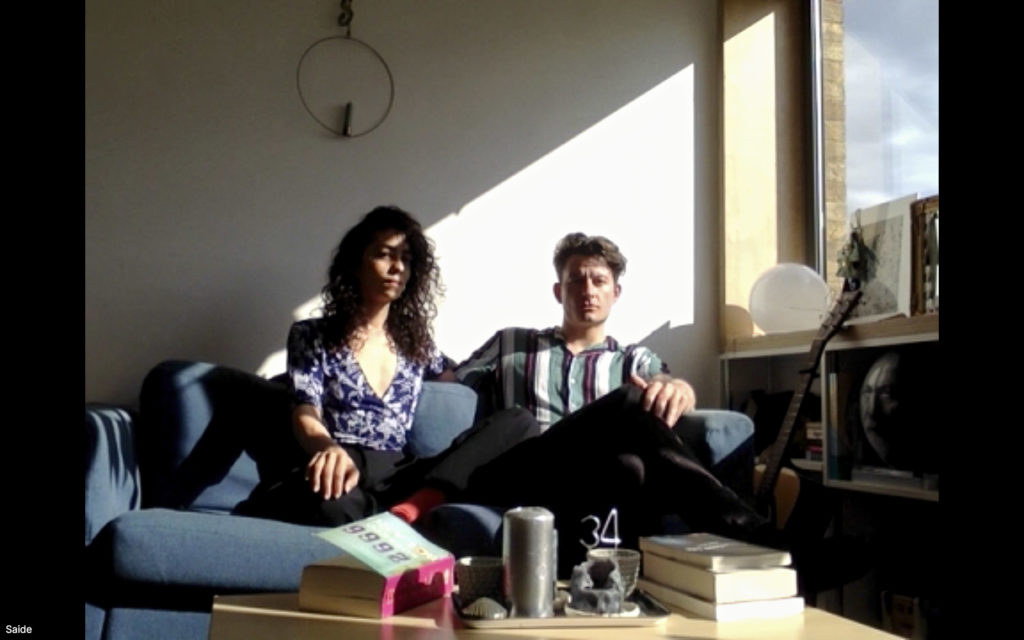
Ilaria Magliocchetti Lombi
Photographer

Saide and Cristopher. Churchill College (Wolfson flats), Cambridge, UK
Saide, from Mexico, is a first-year PhD candidate in Sociology at the University of Cambridge. Chris, from England, is an English teacher and freelance photographer. They are spending the quarantine together in a studio flat at the Wolfson building in Churchill College.
“Life started to drastically change on March 19th, when the University of Cambridge moved to what they defined as the ‘Red’ phase of the Covid-19 pandemic. Students were advised to return home. The vast majority, particularly undergraduates, left that week. Since then, all research undertaken on University premises was completely stopped. On Tuesday 23rd of March, the UK’s official lockdown was announced. Cambridge turned into a ghost town. Our daily bike rides across its stunning surroundings remind us that we do not have enough adjectives to describe this. Sometimes, it feels as if the city’s beauty has been tainted, its vibrancy disrupted by what has been referred to as an invisible enemy. Other times, it feels as if we are finding new ways of connecting to our surroundings through an untouchable—at times uncanny—stillness. Adjusting to the dissonance between then and now, three weeks ago and today, our previous and our current life has been the hardest part. The same thing applies to the lack of social touch. While our minds might be connected through the screen of a technological device, it is that same medium the one that reminds us about the absence of our bodies. We can see and hear yet we can’t fully feel the touch of others. Throughout this collective grievance, together with the anxiety produced when we think about the millions of people who are being severely affected by this crisis in Mexico, England, and around the globe, we are reminded of how extremely privileged we are. Although our daily lives have been disturbed, we still have a safe and loving home to come to. In this sense, the current adversity has given us the chance to be more appreciative; express our gratitude; resignify the meaning of refuge as a couple; and to think about sociopolitical alternatives rooted in solidarity and empathy towards our communities”.